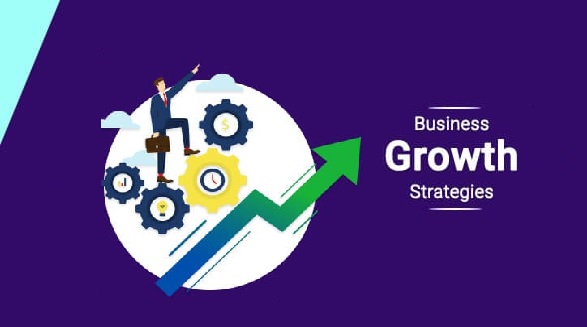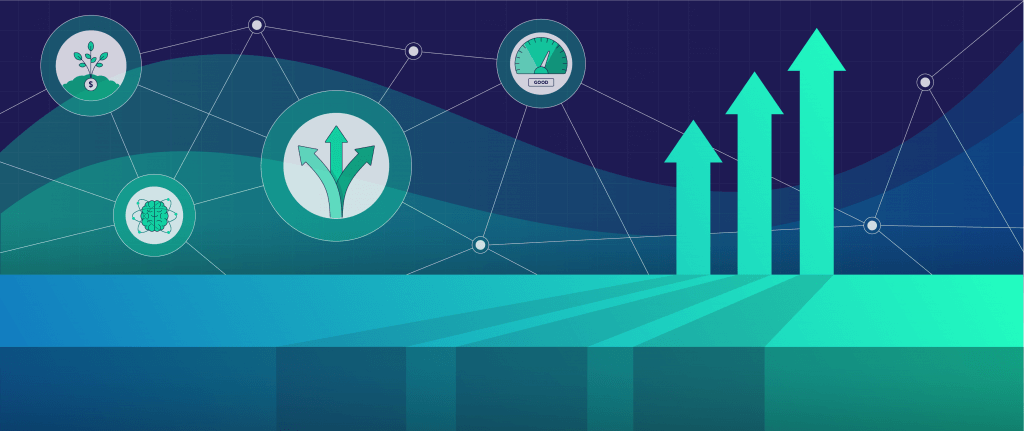Growth Marketing vs lead generation: the Better Business Strategy
Do you know what they say about people’s opinions? Everybody has got one, and this applies to marketers as well. Many focus on one specialized approach, as they try to explain why their way is the ‘correct’ way. Lately, we see the debate over lead generation vs. growth marketing — two swiftly rising trends in the marketing world.
In the last five years, one of the significant developments is the vital requirement and the inevitable demand for digital assets to deliver effective marketing programs such as Growth Marketing Strategy. They have become the driving force of any business sales. However, when we talk about the b2b marketing world, there seems to be a considerable debate about growth marketing and lead generation Marketing.
In fact, digital marketers use these Marketing growth strategies interchangeably now, to the point that they see no distinction between the two. But, are these terms interchangeable as popularly claimed? And more importantly, are they codependent? If the answer is yes, what is the thing that connects them and how does all of it come in line with today’s B2B marketers?
Let’s start by unpacking what the terms mean and the importance they carry for marketers in today’s time:
What is Growth Marketing?

As the name suggests, Growth marketing is a holistic approach to marketing that employs several tactics across numerous channels with the primary focus of achieving and sustaining growth. This technique came into existence from the rapidly gaining interest in growth hacking. It is a technique of achieving quick growth with one-off tactics. However, today growth marketing has become a proven methodology that provides businesses with a long-term, strategic roadmap in order to fulfil all the growth-related goals.
Growth marketing leverages the ‘pirate funnel’ to build demand and create loyal customers — all with the motive to drive traffic, revenue, and other growth metrics.
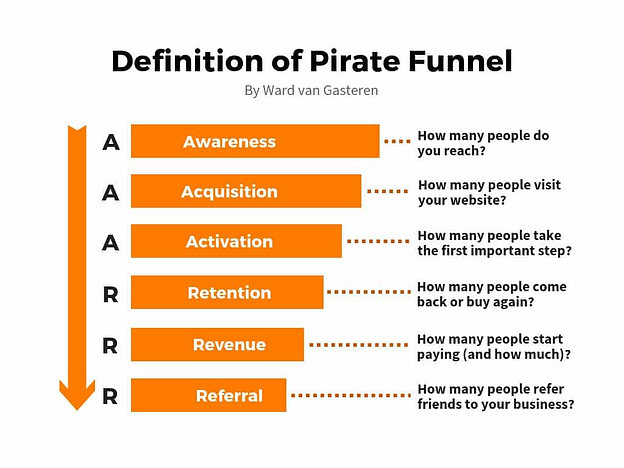
Source
However, instead of focusing only on awareness, acquisition, and activation (as is the case with traditional marketing), growth marketing emphasises on retention, revenue, and referral too, so the customers your business gains will stick around and tell others. It is because in the long run, that is how you achieve long-term, sustainable growth.
Common Growth Marketing Tactics and Channels
Though there are several tactics and channels for growth, it might not be the most reliable. Therefore, while determining which tactics to use, the team responsible for growth teams answers only one question: ‘What gives us the highest chance of hitting our growth goals?’
Typically, high-performing growth marketing teams focus on plays that are compounding vs. one-and-done. A simple example can be comparing a well-written content on your website vs. a Facebook ad that just went live. A piece of well-written content will surely attract and convert leads today and even two years later. However, the latter demands regular financial investment to keep going. The ad only produces leads when it is live, but when it’s gone, it’s gone. Therefore, some of the most commonly used marketing channels and tactics for growth are mostly about content. Some of them are:
- Regular blog posting with embedded lead magnets
- SEO research and optimization
- Automated email marketing
- Targeted email marketing campaigns
- Repurposing blog content across social media and search platforms
- Creating lead magnets for use across key webpages
- Building cold, warm, and hot webpages
What is Lead generation?
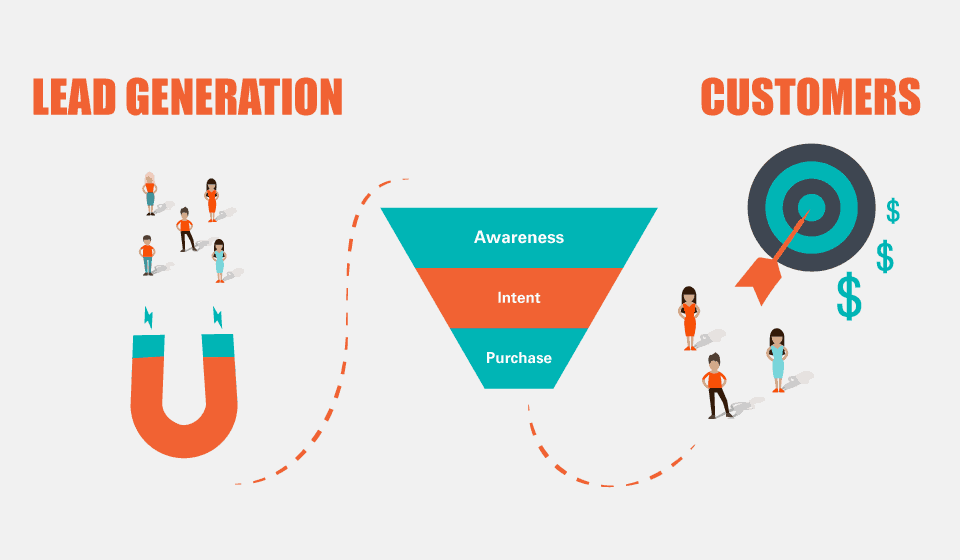
When prospects express their interest in your service or product and convert it into bonafide customers, the process is called lead generation. It is the fruition of all your lead generation efforts. Simply put, lead gen gets you the attention. If put in the fishing analogy, lead generation is just like luring the hook with the best bait to catch the fish of your desire.
When marketers want to convert prospects into customers, they can employ several methods. In terms of B2B lead generation, there are endless marketing strategies. Based on the campaign’s overall goal, one can choose the strategy that works best.
Common Lead Generation Tactics and Channels
The marketing world has witnessed many crossovers between growth marketing and lead generation tactics and channels. However, one of the most significant differences between the both is the application of paid channels in lead generation strategies.
- PPC and retargeting ad campaigns
- Paid social media ad campaigns
- Blog post content
- Creating a lead magnet or a free tool
- Traditional and digital PR techniques
- Organic social media content
- Events
- Email marketing campaign
There you have it! Now that you know what lead generation and marketing growth is, let us see in what terms they are the same.
Similarities Between Growth Marketing and Lead generation
- Lead generation and growth marketing focus on targeting a suitable customer segment versus blasting messages to everyone.
- Both the strategies employ content and lead magnets targeting customer segments for building a sales pipeline.
- In order to focus efforts on converting buyers most likely to purchase, both the strategies also place a premium on lead nurturing and qualification.
- Both strategies are data and strategy-driven.
Taking account of progress, metrics, and specific KPIs is not all about looking good to C-suite and executives; it determines the daily, monthly and weekly decision-making process to optimize and experiment.
Growth marketing Vs. Lead generation
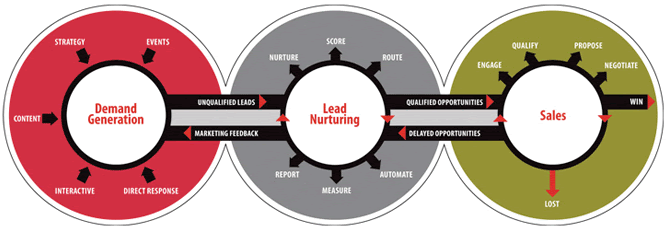
It is important to track multiple data points when you want to measure the ROI on your lead generation strategy or growth marketing content. A simple example can be a white paper that has good download conversion rates, but how do you know if it reached the right audience or if it has convinced them to take action? Fortunately, there are key performance indicators and metrics for all the strategies you can use to track a particular campaign’s performance.
When and how you use to start tactics is based on a lot of factors. Typically, growth marketing is used for newer businesses and tech startups, while established brands with a good number of audience employ lead generation. Having said that, any level of brand can use both strategies, but the key is to find a growth marketing agency that perfectly understands lead generation and how to work for your brand. So, the first point of difference is the comparing tactics:
Comparing Tactics: Growth Marketing vs. Lead generation
The tactics used in lead generation and growth marketing are more or less the same as they are derived from inbound marketing activities and channels and include outbound marketing techniques like paid advertising. However, when it comes to the primary difference, growth marketing typically spans the entire customer acquisition funnel and is dependent on additional techniques for improving sales, retention, and referral metrics.
Lead generation Tactics Include:
- Search engine optimization (SEO)
- Blogging
- Lead magnets
- Conversion rate optimization (CRO)
- Paid ads
- Social media engagement
- Podcasts
- Webinars
- Live events – trade shows, conferences, industry events
- Account-Based Marketing (ABM)
- Influencer marketing
- Direct mail and more
Growth Marketing Tactics Include:
- Search engine optimization (SEO)
- Blogging
- Lead magnets
- Conversion rate optimization (CRO)
- Email nurture campaigns
- Sales enablement
- Customer onboarding
- Loyalty programs
- Referral programs
- Net promoter score (NPS)
- Paid ads
- Social media engagement
- Podcasts
- Webinars
- Live events – trade shows, conferences, industry events
- Account-Based Marketing (ABM)
- Influencer marketing and more
In either case, there are quite a lot of tactics to take into account.
- Referral Engine
When it comes to referral engines, it is important to build one for growth marketing teams. Growth takes place via profitable customer acquisition. Leads that come from customer referrals are inexpensive and proved to be quite crucial to achieving profitable customer acquisition and growth.
In the AAARRR framework of growth marketing, the three A’s focus on convincing a person to buy something and the three R’s help establish loyalty among your company’s buyers. Thus, building a referral engine is built into growth marketing.
lead generation programs typically focus more on the traffic-led nurturing-sales flow. However, individual teams and companies focus on building referrals to generate demand.
- North Star Metric: Growth vs. Revenue
Growth marketing focuses entirely on a business’s growth aspect, while lead generation is more about revenue and sales. One might argue that more revenue translates to growth, but that does not necessarily happen.
One of the key components of growth is revenue. However, you can improve revenue significantly without seeing it or any improvement in your growth rate.
The functioning and optimization of all six levers make growth possible, thereby achieving profitable customer acquisition.
- Goals and Modelling
Growth marketing is not subjective, so you pick an endpoint and plan accordingly to reach the goal. Again, we can take an example. If website traffic is one of the important drivers of your business growth, you might want to set a goal of 5x-ing your website traffic over the next 2-3 years. All you need is your baseline number, the ultimate goal of whatever number 5x-ing is and voila? You can make an objective growth model of the numbers so that you can fulfill it every month.
On the other hand, lead generation is primarily focused on the business plan and the comprehensive business goals. For example, lead generation focuses on upselling or retaining a particular percentage of more customers or setting business goals for marketing-influenced revenue.
- Structure of the team
Lead generation programs are usually spread across various teams like strategy, creative, content, and lead nurturing. However, there is just one cross-functional team in a growth marketing team structure. At their minimum, growth teams usually include the designer, growth marketer, developer and operations management. While you can build your growth internally, many internal companies opt for an outsourced growth team ready to start building a growth engine immediately.
These are all the differences between lead generation and growth marketing. It is now time to see what is right for your business.
Growth Marketing vs. Lead generation: Which is Right for You?

Choosing which strategy is suitable for you is dependent on your business and growth stage. Typically, growth marketing applies if you are in the early stage of your business. So startup companies or companies that aspire to higher growth can go for growth marketing hacks.
Lead generation is ideal for many businesses but keeping customer acquisition profitable is crucial. Therefore, leaf generation is best suited for a company that is quite reputed and established and has a large marketing budget.
Conclusion:
Lead generation and growth marketing share so many objectives and tactics many marketers have started considering that growth marketing must include lead generation in its top-of-funnel strategy.
At the end of the day, what matters the most is a holistic strategy that will perfectly align with all your sales and marketing activities and revenue goals. When you have a smart growth marketing framework in place, you will get rid of the expensive guesswork that has led to the downfall of so many businesses. Thus, you will have a profitable business.
By now, you must be wondering what a smart growth marketing strategy looks like. Let Lean Summit Solutions help you with a free consultation session! Who are we, you ask?
We are a company that collaborates with business leaders catering to their most important business needs and helping them find the most promising business solutions. Being an innovator in business strategy, we believe in personalized approaches. Organizations that wish to go forward must combine human resources with digital capabilities, and with LSS, you surely can have a clear roadmap to success that distinguishes the organization. We leverage data science, technology, and design to bring change to your business. So, what’s stopping you?


